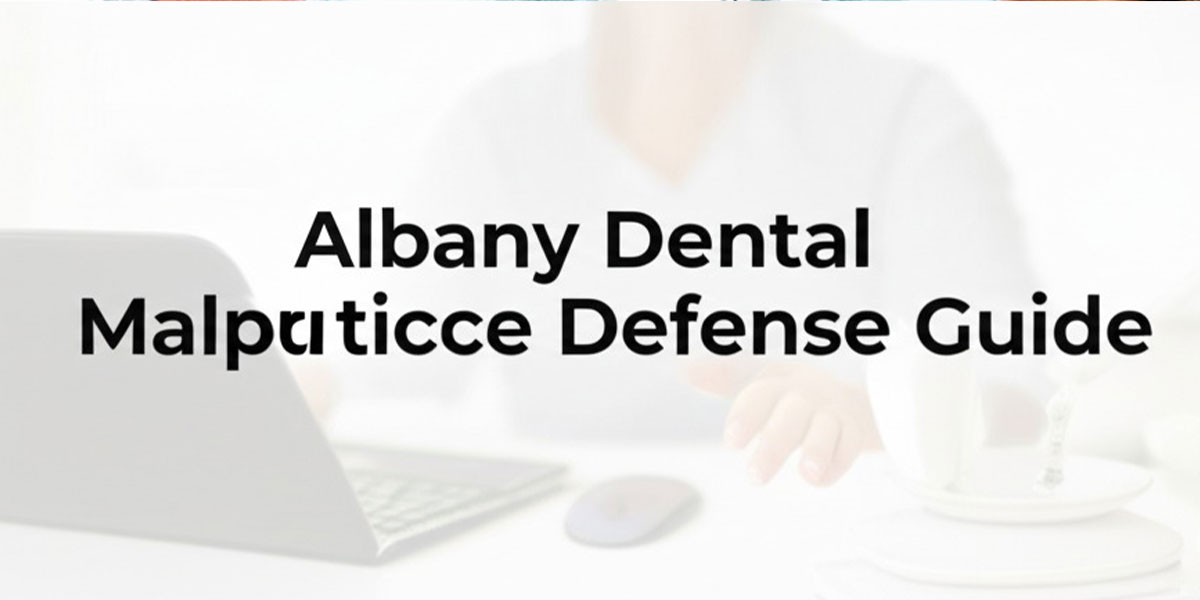Navigating the aftermath of a loved one’s passing is never easy, and the complexities can multiply when estate debts come into play. While the emotional weight of loss can cast a heavy shadow, understanding how to handle estate debts can bring a sense of clarity and purpose during these challenging times. This article aims to illuminate the intricate landscape of estate debts, offering practical guidance to ensure you can honor your loved one’s legacy while responsibly managing their financial obligations. From deciphering the difference between secured and unsecured debts to understanding the implications for heirs and beneficiaries, we’ll equip you with knowledge and strategies to approach this sensitive matter with confidence and care. Whether you are an executor tasked with settling an estate or a family member looking for insight, we invite you to explore the essential steps in addressing estate debts and ensuring a smooth transition during a period of profound change.
Navigating Estate Debts: A Financial Guide
Dealing with an estate after someone passes away involves understanding how to manage outstanding debts effectively. Estate debts encompass various financial obligations that need systematic attention. Executors or administrators should prioritize communication with creditors and document all claims accurately.
- Compile Debt Inventory: Assemble a detailed list of all outstanding debts left by the deceased, including mortgages, personal loans, credit card balances, and unpaid bills.
- Verify Claims: Examine each claim submitted by creditors carefully. Ensure they are legitimate claims within appropriate timeframes for payment from the estate.
- Prioritize Payments: Some obligations take precedence over others based on legal guidelines—typically starting with funeral expenses followed by taxes.
Maintaining meticulous records of all transactions related to these debts is crucial for transparency and preparing for potential disputes or legal inquiries. Below is an illustrative chart detailing common types of estate obligations along with their priority order:
| Debt Type | Payment Priority |
|---|---|
| Funeral Expenses | High |
| Taxes | High |
| Secured Debts (e.g., mortgage, car loan) | Medium |
| Unsecured Debts (e.g., credit cards, medical bills) | Low |
By understanding creditor hierarchy while maintaining clear communication throughout this process—and seeking legal advice when necessary—you can navigate through managing these responsibilities effectively while honoring your loved one’s wishes.
Types Of Debts In An Estate Explained
When handling an estate’s affairs post-mortem, identifying different debt types impacting probate processes becomes essential. Generally categorized into secured and unsecured categories, each carries unique implications for overall financial health:
| Type of Debt | Examples | Impact on Estate |
|---|---|---|
| Secured | Mortgage, Car Loan | If unpaid, collateral may be at risk. |
| Unsecured | Credit Cards, Medical Bills | It might require negotiation; generally, it is a lower priority. |
Understanding these debt types is essential for effectively managing estate settlements. By differentiating between secured and unsecured debts, executors can formulate a strategic approach to handle liabilities while ensuring equitable distribution of the estate’s remaining assets.
Strategies for Responsible Debt Settlement
Responsible management is crucial when dealing with estate debts to honor the deceased’s financial commitments while preserving the estate’s value. Here are several strategies to guide you through this intricate process:
- Open Communication: Engage in transparent discussions with creditors to clarify debts owed and repayment terms. Clear communication can often result in more flexible repayment options.
- Create a Detailed Budget: Develop a comprehensive budget that outlines available cash flow within the estate. This should include all debts and their due dates, staged repayments, and necessary expenses for maintaining the estate.
- Evaluate Asset Liquidity: Assess which assets within the estate can be liquidated to cover debts. High-value assets might need to be sold based on market conditions.
- Negotiate with Creditors: Many creditors are open to negotiating payment amounts or terms. If liquidity is an issue, discuss potential debt reductions or extended repayment periods.
Professional Guidance in Debt Management
Managing estate debts can be complex; seeking professional guidance can prove invaluable. Financial advisors, estate lawyers, and debt counselors possess the expertise needed to:
- Analyze total outstanding debts
- Understand the legal ramifications associated with estate debts
- Explore options such as selling assets
- Negotiate settlements
Establishing a timeline for handling these responsibilities is equally important. Here is a concise breakdown of the typical steps involved in managing estate debts:
| Phase | Details |
|---|---|
| Evaluation | Create an inventory of all debts and evaluate the overall financial situation. |
| Legal Advice | Consult with an estate lawyer to comprehend legal obligations. |
| Plan Development | Develop a strategy for paying off debts, including asset liquidation if necessary. |
| Strategy Execution | Implement the plan and maintain communication with creditors. |
Tackling this process requires patience and strategic planning. With the right professional guidance, an overwhelming task can become manageable, leading to a more organized resolution of estate debts. Having experienced advisors by your side ensures that each step is deliberate and aligned with your financial objectives.
Final Thoughts
The complexities of life often include dealing with estate debts, which can overshadow otherwise joyous memories. However, as we’ve explored the key aspects of handling these responsibilities, it becomes evident that navigating this journey demands both understanding and empathy. Properly managing estate debts not only respects the wishes of those who have passed but also safeguards the financial future of their heirs.
At this pivotal moment, remember that transparency and organization are crucial allies. Professional advice can significantly reduce uncertainty. Addressing estate debts transcends mere financial management; it’s an act of stewardship that allows cherished memories to shine brighter amidst responsibility.
Approach this challenge with openness; doing so contributes to debt resolution and preserving a legacy filled with love and care beyond complex financial matters. As you proceed, know that today’s lessons will help create a legacy that is balanced financially and enriched in spirit.
Mastering Estate Debts:
Understanding Estate Debts
Estate debts are liabilities or obligations that an individual has at the time of their passing. These debts must be resolved before the proceeds from the estate can be distributed to the heirs. Common estate debts include mortgages, credit card balances, medical bills, and personal loans.
Types of Estate Debts
Secured Debts
Secured debts are tied to collateral, such as a mortgage on a home or a car loan. If these debts are not paid, the creditor has the right to seize the collateral.
Unsecured Debts
Unsecured debts do not have collateral tied to them. Examples include credit card balances and student loans. These creditors must wait in line and have no specific asset to claim if the debt is not paid.
Steps to Managing Estate Debts
1. Gather All Financial Documents
- Identify all existing debts and their amounts.
- Collect statements, loan documents, and bills.
2. Notify Creditors
- Inform creditors about the decedent’s passing.
- Provide necessary documentation, such as the death certificate.
3. Evaluate the Estate’s Assets
Determine the total value of the estate’s assets, including real estate, bank accounts, investments, and personal property.
4. Prioritize Payments
Pay secured debts first, as creditors will have the right to claim collateral. Followed by paying unsecured debts based on available estate assets.
Common Challenges and Solutions
Unknown Debts
Sometimes, the deceased may have had unknown debts. To discover these, publish a notice to creditors in a local newspaper and request that anyone with a claim against the estate come forward within a specified period.
Insufficient Estate Assets
If the estate does not have enough assets to cover all debts, state law dictates the order in which debts should be paid. Unpaid debts may need to be written off, but heirs are generally not responsible for these debts.
Disputes Among Heirs
Clear communication and thorough documentation are vital in resolving disputes among heirs. Involve a neutral third party, such as an attorney or a mediator, when necessary.
Tools and Resources for Managing Estate Debts
Estate Planning Software
Utilize estate planning software like Quicken WillMaker or LegalZoom to create clear estate plans that outline debt management strategies.
| Software | Features |
|---|---|
| Quicken WillMaker | Comprehensive will creation, estate planning, and debt management. |
| LegalZoom | Customizable legal documents and access to legal advice. |
Professional Advisors
Consult with financial advisors, estate planning attorneys, and accountants to develop a comprehensive strategy for managing estate debts.
Debt Management Services
Consider engaging a debt management service to negotiate with creditors and develop a repayment plan tailored to the estate’s assets and liabilities.
Practical Tips for Mastering Estate Debts
Create an Estate Inventory
Document all assets and liabilities in one comprehensive inventory. This inventory will be valuable when managing debts and distributing assets.
Regularly Update Your Estate Plan
Stay proactive by periodically reviewing and updating your estate plan to reflect changes in your financial situation and family dynamics.
Leverage Joint Ownership
Jointly held assets, such as a joint bank account, typically pass directly to the surviving owner, bypassing probate and estate debts.
Case Studies: Real-Life Examples
Case Study 1: The Smith Family’s Journey
When Mr. Smith passed away, the Smith family faced numerous debts, including a mortgage and outstanding credit card balances. By utilizing estate planning software and consulting with a financial advisor, they settled all secured debts and worked out a manageable payment plan for unsecured debts. Clear communication within the family helped avoid disputes and maintain harmony.
Case Study 2: Resolving Complex Debts
Mrs. Johnson left behind a complex array of debts and assets. The family published a notice to creditors and set a deadline for submitting claims. They engaged an estate planning attorney to guide them through prioritizing payments and negotiating with creditors. Ultimately, they successfully managed the estate without needing to liquidate essential assets.
Benefits of Effective Estate Debt Management
Financial Peace
By mastering estate debts, families achieve financial peace and preserve their loved one’s legacy without undue financial stress.
Painless Asset Distribution
Efficient debt management paves the way for the smooth distribution of assets to heirs, avoiding potential legal complications and disputes.
Minimized Legal Risks
Proper estate debt management minimizes the risk of legal disputes with creditors and ensures compliance with state laws governing estate settlements.
First-Hand Experience: Insights from Families
Several families have shared their experiences and insights on managing estate debts. Here are a few tips they’ve found helpful:
- Stay Organized: The key to effective debt management was maintaining a detailed and organized record of all debts and assets.
- Communicate Openly: Open communication within the family helped avoid misunderstandings and conflicts.
- Seek Professional Advice: Consulting with estate planning professionals made the process smoother and more efficient.
Conclusion
Managing estate debts may seem daunting, but with the right strategies and tools, you can achieve financial peace and ensure a smooth transition for your loved one’s legacy. By staying organized, seeking professional advice, and leveraging available resources, you can confidently navigate the complexities of estate debts.





